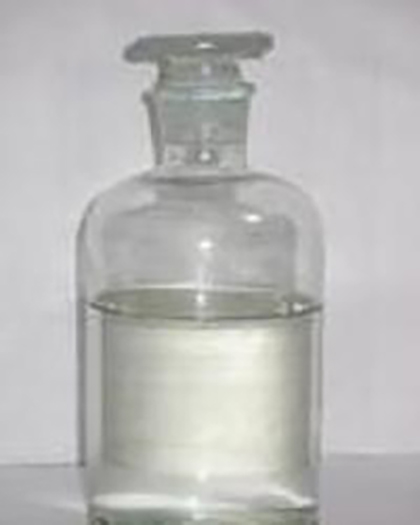A broad inhibitor of viral DNA polymerases---Foscarnet
Apr 13,2022
Foscarnet, also known as phosphonoformate, is an organic analog of inorganic pyrophosphate. Foscarnet is a broad inhibitor of viral DNA polymerases, including both DNA-dependent and RNA-dependent DNA polymerases (the latter usually called reverse transcriptases). It is active against the DNA viruses herpes simplex virus types 1 and 2, cytomegalovirus (CMV), varicella-zoster virus, Epstein–Barr virus, and human herpesviruses types 6 and 8. In addition, it inhibits the reverse transcriptases of hepadnaviruses, including human hepatitis B viruses and primate immunodeficiency viruses, such as HIV-1. It also interferes with mRNA synthesis of influenza viruses.
PHARMACOKINETICS
Clinically, it is used to treat herpesvirus infections, especially those resistant to the usual antiviral drugs and, rarely, for treatment of multidrug-resistant HIV infection. The chemical name for foscarnet is trisodium phosphonoformate hexahydrate and it is marketed by AstraZeneca under the brand name Foscavirs. Foscarnet is available for intravenous injection as water, pH 7.4, with 24 mg of trisodium phosphonoformate hexahydrate per ml. Foscarnet is available for intravenous infusion (Foscavir injection) in 500-ml glass bottles (each ml of the pH 7.4 solution contains 24 mg (80 mM) foscarnet). Prodrugs of foscarnet have been synthesized in an effort to increase oral absorption and tolerability, but they have not been studied clinically, and a liposomal preparation for intraocular use has been developed, but also has not undergone clinical trials.
MECHANISM OF DRUG ACTION
Foscarnet inhibits the DNA polymerases (both DNA-dependent and RNA-dependent, the latter usually called reverse transcriptases) of several virus families. Unlike nucleoside and nucleotide antiviral drugs, foscarnet does not require intracellular alteration for its activity.
Foscarnet inhibits the DNA polymerase of herpesviruses by binding at a site where pyrophosphate is removed as the DNA chain grows by addition of nucleoside triphosphates. Addition of a deoxynucleoside triphosphate to the growing DNA chain releases a pyrophosphate during this process. Foscarnet selectively inhibits the viral DNA polymerase, without significantly inhibiting cellular enzymes. Similarly, foscarnet inhibits the reverse transcriptase of the human immunodeficiency virus and of hepadnaviruses. Inhibition is reversed when infected cells are no longer exposed to the compound.
- Related articles
- Related Qustion
Triethylene glycol, also known as triethylene glycol and diethylene glycol, CAS No. 112-27-6, is a colorless viscous liquid with water absorption.....
Apr 13,2022APITrifluorothymidine, also known as trifluoridine, is a fluorinated pyrimidine nucleoside analog of thymidine and related to idoxuridine.....
Apr 13,2022Antimicrobial agentFoscarnet sodium
63585-09-1You may like
- Is Climbazole Shampoo Safe for Hair?
Jul 10, 2025
- Mechanism of Action of Terconazole
Feb 28, 2025
- Benzyldodecyldimethylammonium Bromide: Applications and Toxicity
Dec 25, 2024
Foscarnet sodium manufacturers
- Foscarnet sodium
-

- $0.00 / 1Kg/Bag
- 2025-12-19
- CAS:63585-09-1
- Min. Order: 1KG
- Purity: 99%min
- Supply Ability: 500KGS
- Foscarnet sodium
-

- $10.00 / 1KG
- 2025-12-11
- CAS:63585-09-1
- Min. Order: 1KG
- Purity: 99%
- Supply Ability: 10 mt
- Foscarnet sodium USP/EP/BP
-

- $1.10 / 1g
- 2025-11-18
- CAS:63585-09-1
- Min. Order: 1g
- Purity: 99.9%
- Supply Ability: 100 Tons Min





